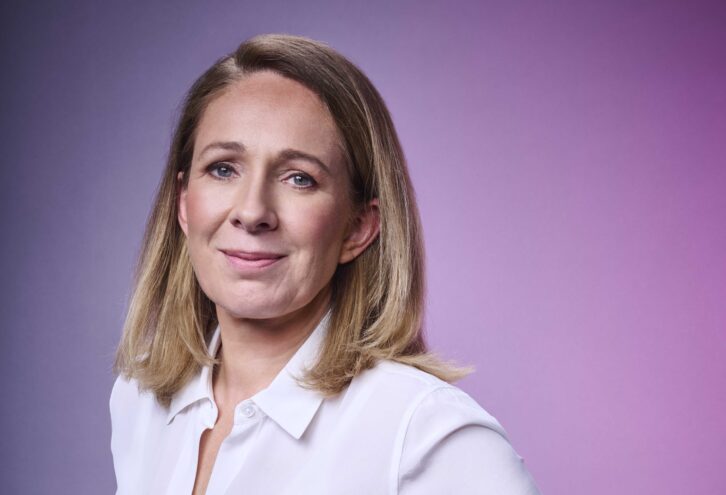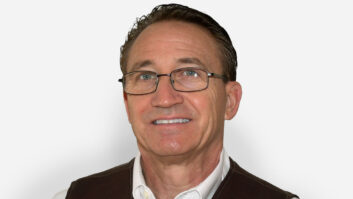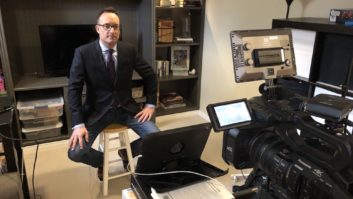Talk us through an average day in your role
One of the wonderful things about my role is the diversity of tasks I get to work on. An average day can be very variable. I spend a great deal of time with my team, helping them work through knotty issues and problems they may be grappling with.

I engage in interesting work around government and lobbying on behalf of the film and TV industry, focusing on tax credits, business rates for studios, and championing the importance of the creative industries and Sky to the health of the UK. I enjoy this aspect of my role very much. Additionally, I am passionate about team development, ensuring we support the next generation of talent both within my teams and in the industry.
My outward-facing role involves managing our international partnerships, often in conversation with partners in the US, particularly NBCU, our distribution partner and a major client for our studio.
I also do a lot of forward planning – in production, you’re often working on projects that won’t be on screen for a couple of years. It’s crucial to stay ahead of market trends to ensure we’re in the best possible position for future developments. This is especially important in content creation, where decisions made now will impact the next two to three years.
Finding partners for our biggest projects is a significant focus, and we strive to be a good partner. I spend a lot of time with my team, thinking about our approach and working with our partners on an ongoing basis.
How did you get started in the media industry?
I think there was quite a degree of luck here. I started off as a banker and was an equity analyst working in the City. I realised pretty quickly that wasn’t the sort of role that was going to keep me interested long term, although it’s a wonderful grounding in many aspects, particularly around financials.
I decided I wanted to go and work for a company and go in-house. I was very lucky to be offered a job at ITV, working in their investor relations department, which is a normal segue way for someone coming out of capital markets. [It] was wonderful because suddenly I found an industry that I really was passionate about, a really interesting sector. Lots of things were changing. When I first joined, we still had only five TV channels and the digital transition was starting to get underway.
So, a bit of luck – once I discovered media you were not going to get me out of it!
What training did you have before entering the industry?
I had no media-specific training. I went through school and university and then I spent a few years working in banking, which gave me a great grounding in finance and financial management and that financial aptitude has been a thread through my career. I worked my way up through finance roles and commercial and operational roles, rather than on the creative side of the business.
I can put a lot of that back to starting off in a financially driven job which gave me a good understanding of P&Ls, cash flows, balance sheets and that has been a skill set that I’ve taken forward as I’ve worked in a broad number of different roles.
It’s hard in media in terms of the kind of training that you may or may not need. The training Is often very different. I’ve seen a huge diversity of different people coming in from different pathways and a lot of it is about getting your foot in the door and learning on the job. For example, many people who’ve come up through the production side of the business may have had some training, but then they get out there, get their sleeves rolled up and they learn a lot from just working on those productions, working with more experienced team members. That’s a path that I think is probably common to many.
Why do you enjoy working in the industry?
I can’t think of a more interesting industry in which to build a career. I love navigating the dynamic market we operate in and strategically figuring out how to best move forward as things constantly change.
The media sector is fascinating because it never stands still. There are always new competitors, formats, approaches, and strategies from both big players and new, interesting smaller ones. It’s never dull or static.
To enjoy working in media, you have to embrace the chaos that comes with it, and I really do. I’m always interested in seeing what the next big thing is and what’s coming around the corner, trying to anticipate what the industry might look like in the next 5-10 years. It’s very energising.
I also love the people. Working in the TV and media sector means you’re surrounded by fascinating, interesting, and wonderful individuals. I get to work with creative people every day, and that’s a total joy. It’s rare to find someone in media who isn’t enthusiastic about what they do, which is another reason I enjoy getting up in the morning.
What piece of advice would you offer someone looking to explore a role similar to yours?
You have to be open-minded. I’ve had a varied career, moving into slightly different roles, and that has given me a breadth of experience that’s been incredibly useful. As I’ve moved up through the business, I now have a broad role reflecting the choices I made earlier in my career, whether in commercial, strategic, or financial roles.
I always tell my team to stay broad for as long as they can and take different opportunities to move around. I’ve been lucky to work at both ITV and Sky, which allowed me to move into various roles over the 20 years I’ve spent at both businesses. This variety has been a real asset and benefit to my career.
I encourage people not to dismiss something that looks interesting but might not be quite in their skill set because it will broaden their skills. I’m always keen to move people around a bit because sticking to one lane might mean missing opportunities. I’ve been fortunate to have such a broad role because I’ve been open-minded about moving around.







